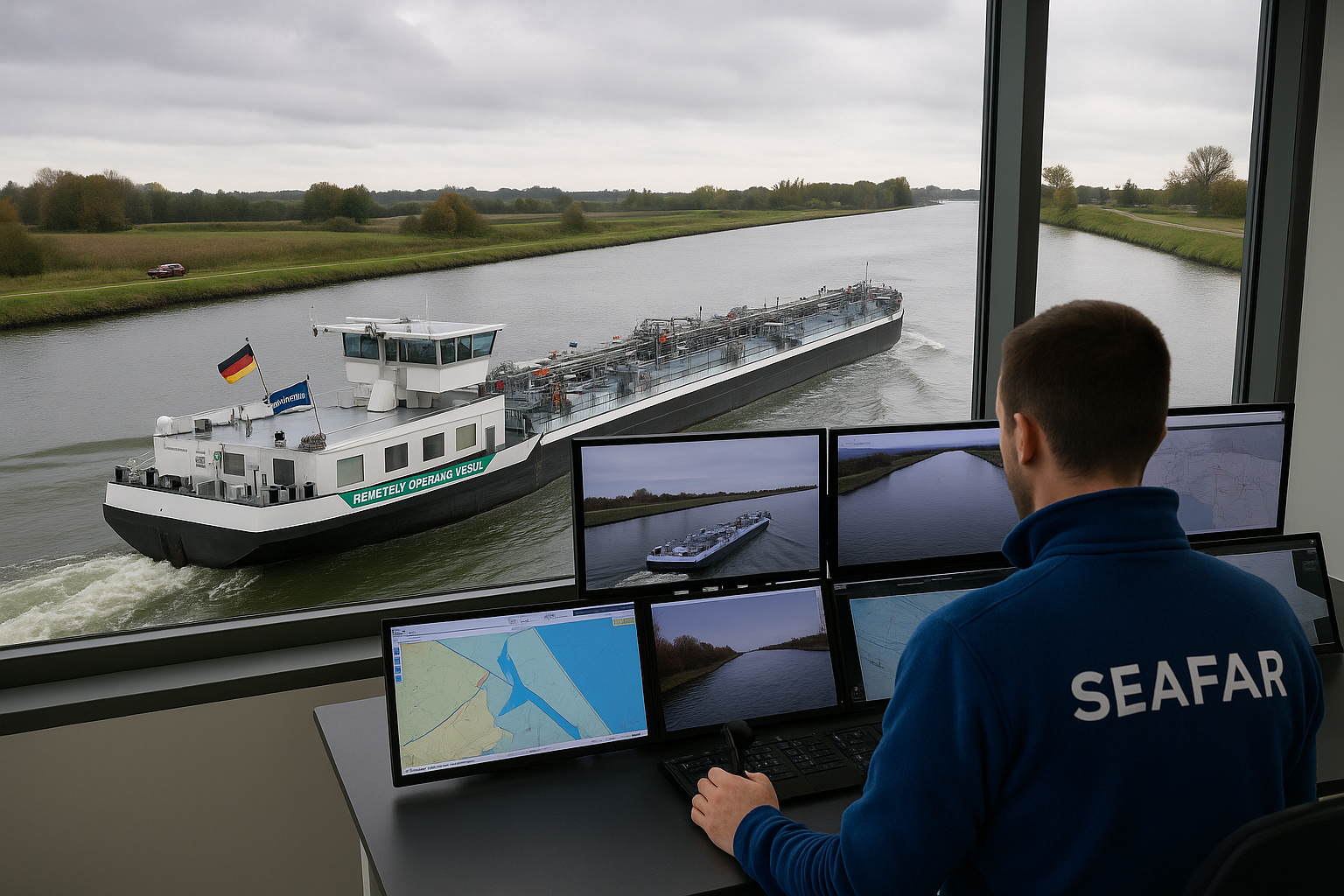HGK Gets Green Light for Remote Vessel Trials in Germany

HGK Shipping, a leading name in Germany’s inland shipping sector, has received official approval to begin testing remote-controlled vessels on the country’s canal network.
After completing initial test runs earlier this month, HGK is now permitted to operate its first remote-controlled inland waterway ship along the route from Scharnebeck to Salzgitter for a six-month trial period.
Headquartered in Duisburg, HGK has been advancing its work with remote shipping technology in partnership with Belgian firm Seafar, a specialist in this field. The initiative aims to address the industry’s growing shortage of skilled personnel and to adapt to the long-term impacts of climate change on the inland shipping sector.
“We’re putting our faith in increasingly digitalising inland waterway shipping together with our technology partner, Seafar, which is operating a so-called remote operations centre in Duisburg, in addition to modernising our fleet. This is an effective lever to increase the attractiveness of this profession when seeking to attract qualified workers,” said Steffen Bauer, CEO of HGK Shipping.
The project received the formal go-ahead from German Federal Minister of Transport, Patrick Schnieder.
“Inland waterway shipping is facing enormous challenges. The shortage of skilled workers, which will particularly become even more critical in the near future, must not be allowed to become a serious obstacle for this hidden champion among the different modes of transport,” Schnieder said. “It is now necessary to get the technology out of the laboratory and onto the water and put it into action.”
Previously, remote-controlled tests with a full crew on board were carried out on the Rhine under a Belgian license. The current German trial will also feature a full crew aboard, but HGK hinted that the next phase could involve operating these upgraded vessels with a smaller crew.
“The goal here is to use personnel in a more flexible manner and enable skippers to spend more time on dry land,” the company explained.
Remote-controlled shipping has already shown success in parts of Europe, notably in Belgium and the Netherlands, and Germany’s new pilot project signals a step toward broader adoption of the technology.